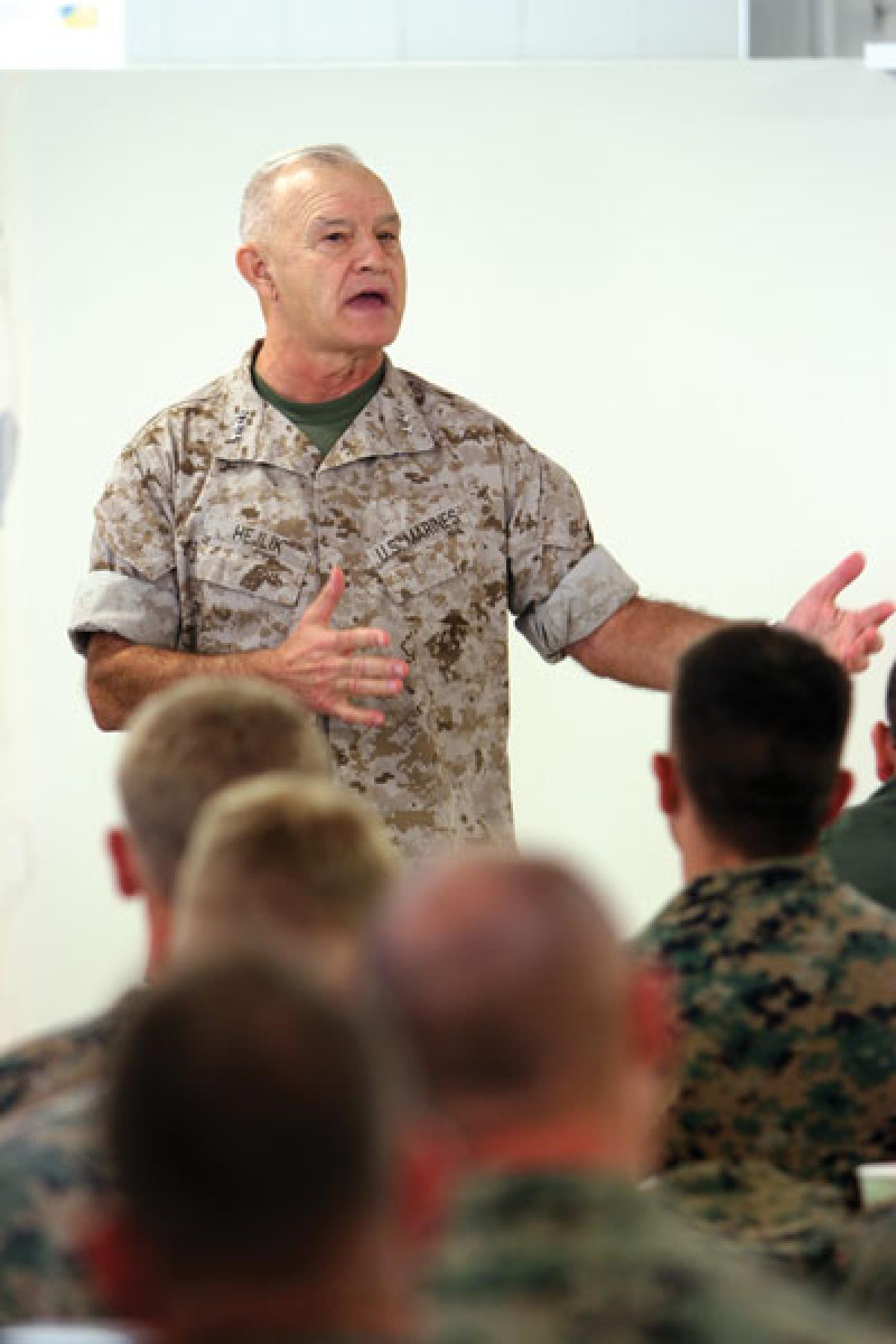Although tradition is an important cornerstone in military institutions, it can sometimes be a roadblock to progress if applied too strictly. A case in point is the U.S. Naval Academy at Annapolis.
The Naval Academy has an illustrious history, having since 1845 educated and trained midshipmen to become officers. As the prowess and stature of the Academy has progressed, it too has had to change. Decisions to enroll women and actively recruit minority students and faculty, curricular expansions, and other major advances have made the school richer. Yet one outworn tradition has not changed, but should.
The Marine Corps is an integral part of the Department of the Navy, and many prominent Naval Academy midshipmen have been selected as Marine second lieutenants upon graduation. But no Marine officer has ever been chosen for the Academy’s top position of superintendent. The tradition has been since 1864 that the superintendent be a naval officer. However, the U.S. Code (Title 10, section 6951A) does not stipulate a naval officer be superintendent. It simply mandates “an officer.” In this new era of jointness whereby the military branches are working more closely together and minimizing historical rivalries, it is unfortunate that Marines have not yet been considered for this position.
As the need for rapidly deployable ground and air capability has increased, the Marine Corps has become an even more critical part of U.S. military strength. Marines are often first responders, ready to secure the peace in any area hit by struggle or disaster before other branches are mobilized.
These capabilities demand a special kind of leadership, one that requires decisiveness, cost-consciousness, expediency, and efficiency. Marine generals know how to operate with intensity and focus. Every other service branch has tried to emulate Marine leadership. Further, some of the nation’s best MBA-producing universities send students to the Marine base at Quantico to learn advanced leadership skills.
Kenneth Chenault, chairman and CEO of American Express, says in his book 21st Century Leadership that “what is clearly going to be needed in the 21st century, particularly with the diversity of the workplace, is the ability to inspire.” For the following reasons, a Marine’s leadership could bring this kind of inspiration as well as other improvements that have not been visualized before.
• Marines taste combat wherever they are sent. A Marine officer would be an experienced and capable leader in the smallest details of combat training.
• Because the Marine Corps shares duties with all the service branches, the oversight of training by one of its officers would greatly increase the comprehensive focus of training at the Academy.
• Traditionally Marines focus on awareness of military and political history, philosophy, formal strategic development, logistics planning, and contingencies. The Navy emphasizes technical education, engineering, and mathematics. Leadership in the Marine areas would improve the Academy’s big-picture perspective.
• The United States often depends more on Marines for a diverse set of directives than on other branches. Because of this, a Marine officer’s leadership would foster diversity.
Working together in the spirit of strengthening our nation’s military should include expanding the pool of qualified applicants for important positions. The Academy is one of the country’s very best institutions, and the young men and women who choose its arduous route deserve the best leadership available. Why not implement a system of rotation in which every second, third, or fourth superintendent chosen would be a Marine, thus taking advantage of this large, currently untapped talent pool?
Tradition is important, but improvement is even more so. In this era of ongoing conflict, the need for new perspectives is crucial. As our troops continue to serve bravely oversees, it would be both strategic and timely to foster an even greater spirit of integration between the Navy and Marines to make the most of a defense budget that will, in all probability, decrease. The ever-faithful Marine Corps deserves the chance to be a force for leadership excellence at the top of the Naval Academy, as it is in so many other areas of our nation’s defense.



